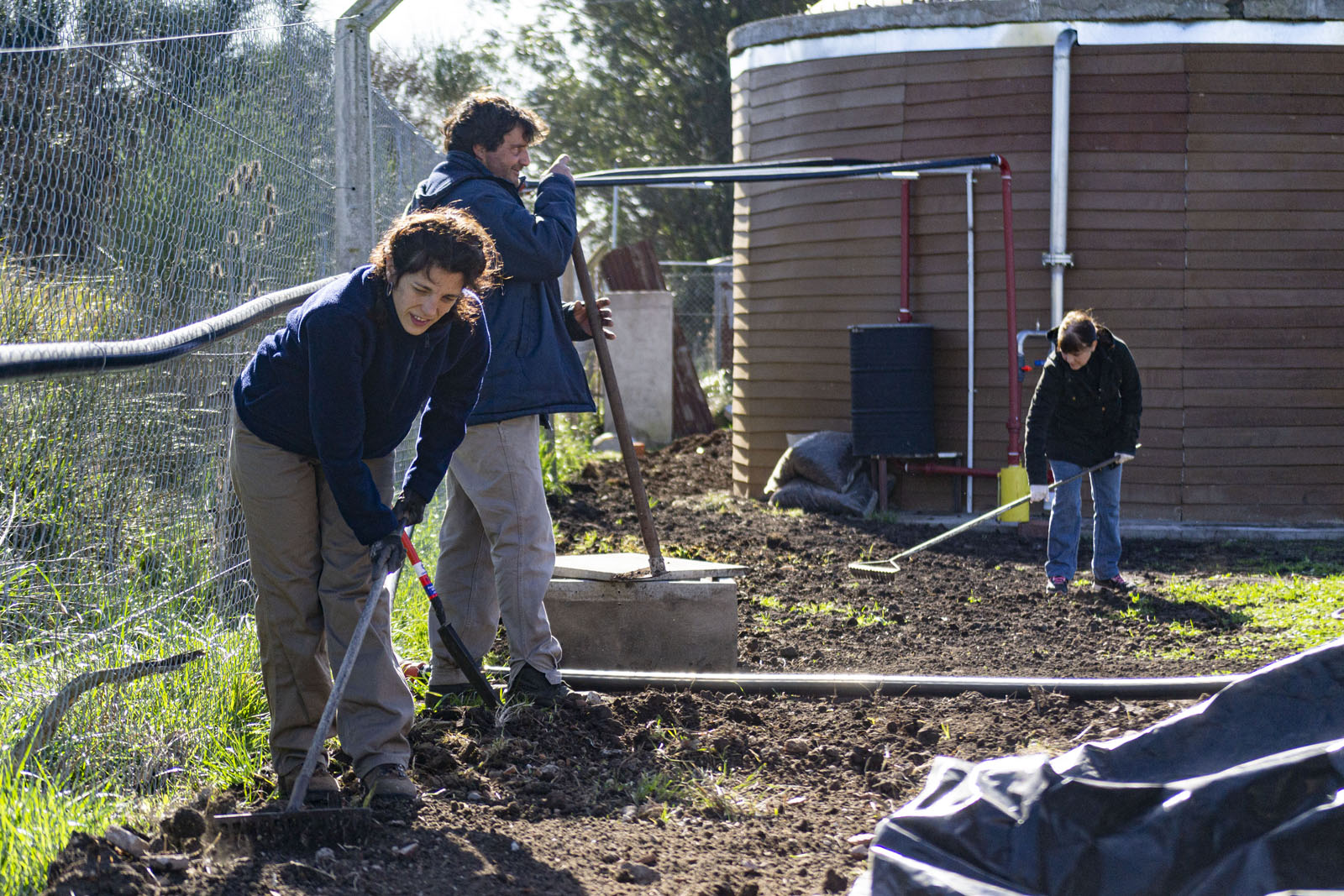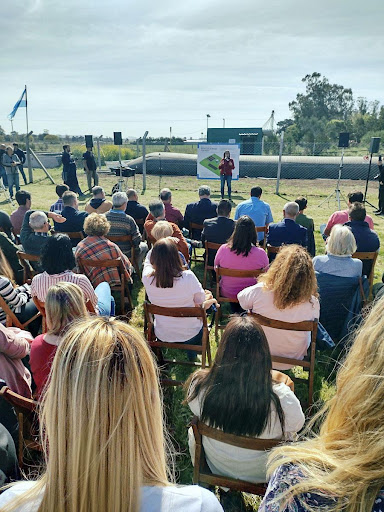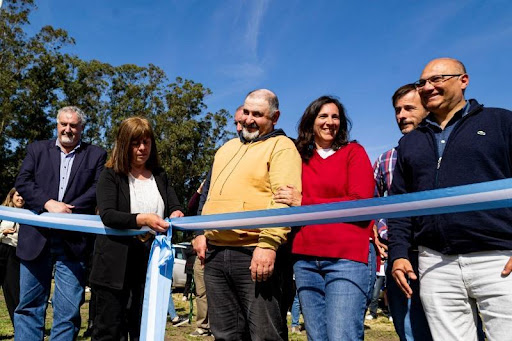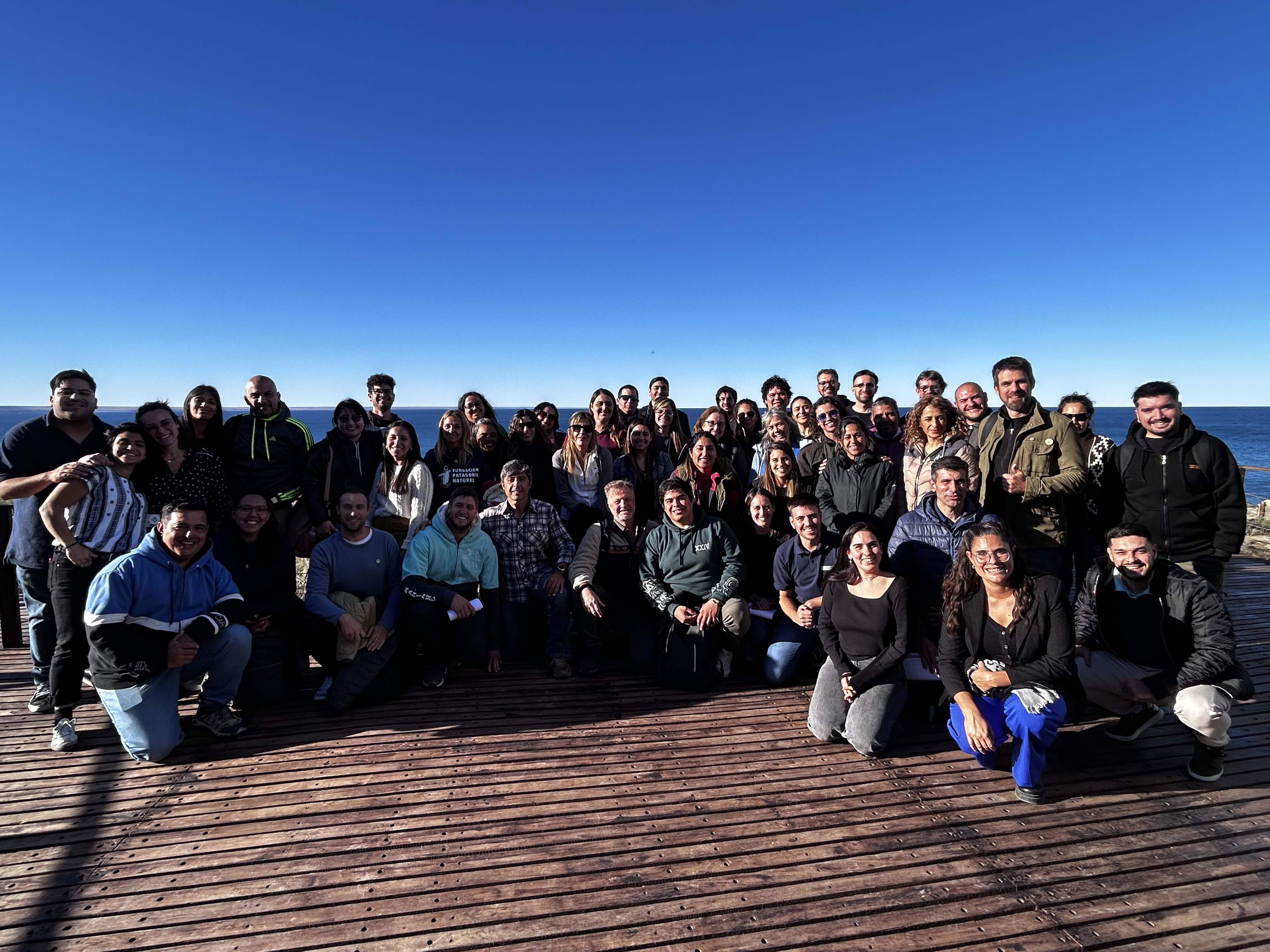More than 45 teachers from 15 schools in Chubut Province, Argentina, participated in the first training to launch our newest capacity building partnership: the YouthEnergy project.
Los Pinos – A technical project with a social heart
A glimpse into the beginnings of the project
Los Pinos, a rural community with just over 300 inhabitants in Argentina, has embarked on its journey towards renewable energy. The residents of Los Pinos had been aware for some time that their inefficient energy system and the absence of proper treatment methods for organic residues was causing pollution that was particularly damaging for their rural community where livelihoods depend to a large extent on agricultural activities.
Therefore, when the opportunity arose to embark on a project under the WISIONS of Sustainability initiative, the community did not hesitate to seize the chance to improve the quality of life in the village.
Together with WISIONS, the National Institute of Agricultural Technology (INTA) developed a Biogas Demonstration Unit. This unit generates biogas through the proper treatment of organic residues from chicken manure, pig manure and other agro-industrial by-products. The biogas is used to drive a generator that powers the pumps for the village’s water supply. The community was fully consulted and included throughout the project and has become increasingly involved over time.
The process and its strong social imprint

Residents of the community of Los Pinos Demonstration Unit. September 2022, Buenos Aires (Argentina).
The project’s social mission was just as important for the community – if not more important – than the installation of the innovative technology. When the chance to undertake a project with the support of WISIONS initially arose, the community saw it as an opportunity not only to mitigate environmental pollution and diversify the energy mix, but also to educate the residents of Los Pinos about environmental issues and to generate new jobs.
One of the main social outcomes of this project was the strengthening of ties between neighbours. Before the project started, the village community was not particularly close-knit. This all changed: because the community was in charge of managing the biodigester, a feeling of togetherness grew that brought residents together on a level that had not previously existed in Los Pinos.
The project also generated new jobs – which particularly empowered women. INTA led the technical planning and execution of the biodigester and the University of Mar del Plata supported the community to create a cooperative. Even during the implementation stage, the cooperative – run by the residents – gradually took over the management of the project. Today it is responsible for making the decisions regarding the future of the biodigester.
The cooperative is currently run mostly by women. Why? Because the men work in the fields during the day and come home tired and lacking in motivation. Consequently, the women from the village took the initiative at the outset and are now the spokespeople for the project.

Mercedes Echarte, INTA Project Coordinator, gives a speech to the residents of Los Pinos at the launch of the Biogas Demonstration Unit. October 3rd, 2022, Buenos Aires (Argentina).
What next? The path that lies ahead
This is only the beginning! The introduction of the biodigester was the first step towards positive change in the community which, over time, will hopefully trigger further collective action for improving the economic opportunities, social robustness and environmental performance of the whole village. Mercedes Echarte sums this up powerfully:
‘The end of the project is the planting of a seed; it is the beginning of the change community access to this.’

Members of the community responsible for managing the biodigester, representatives of INTA and Mar del Plata National University, and officials from the municipality of Los Pinos at the launch of the Biogas Demonstration Unit. October 3rd, 2022, Buenos Aires (Argentina).

